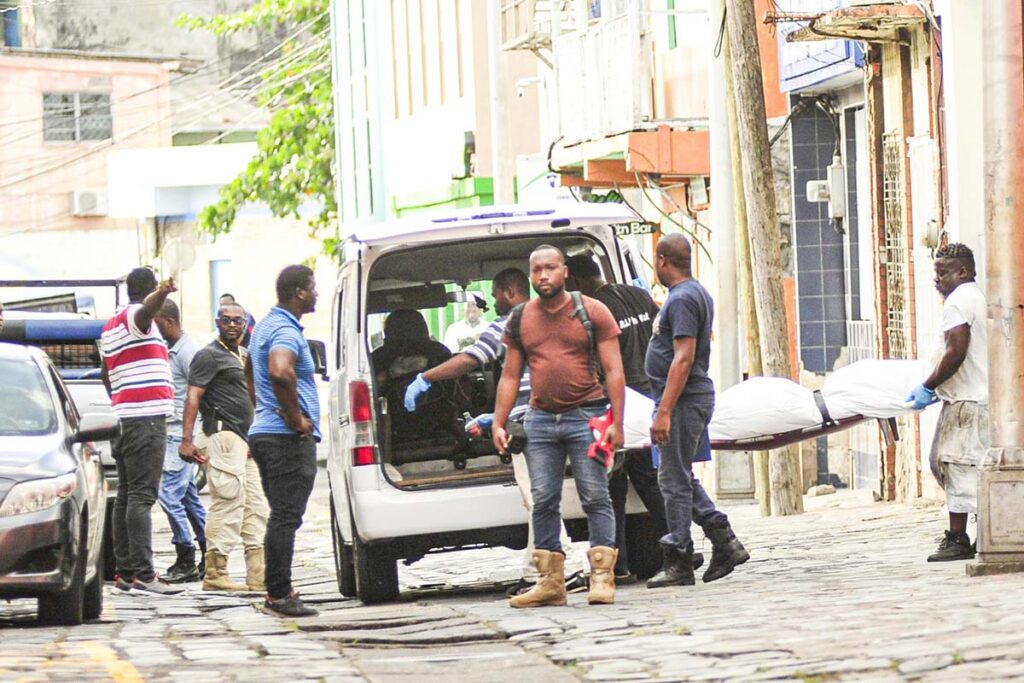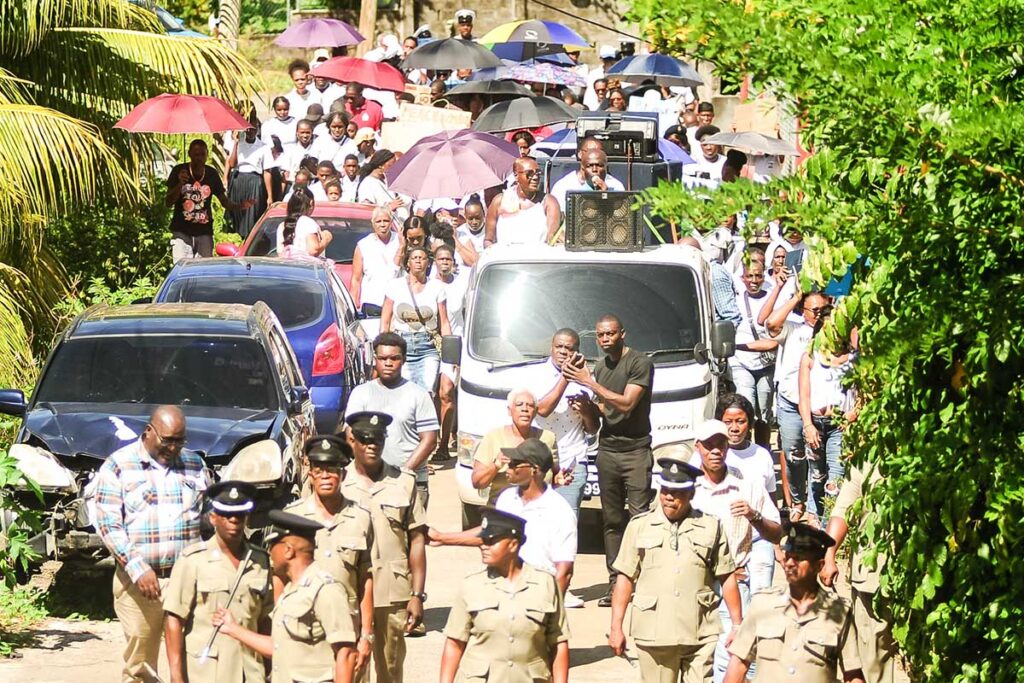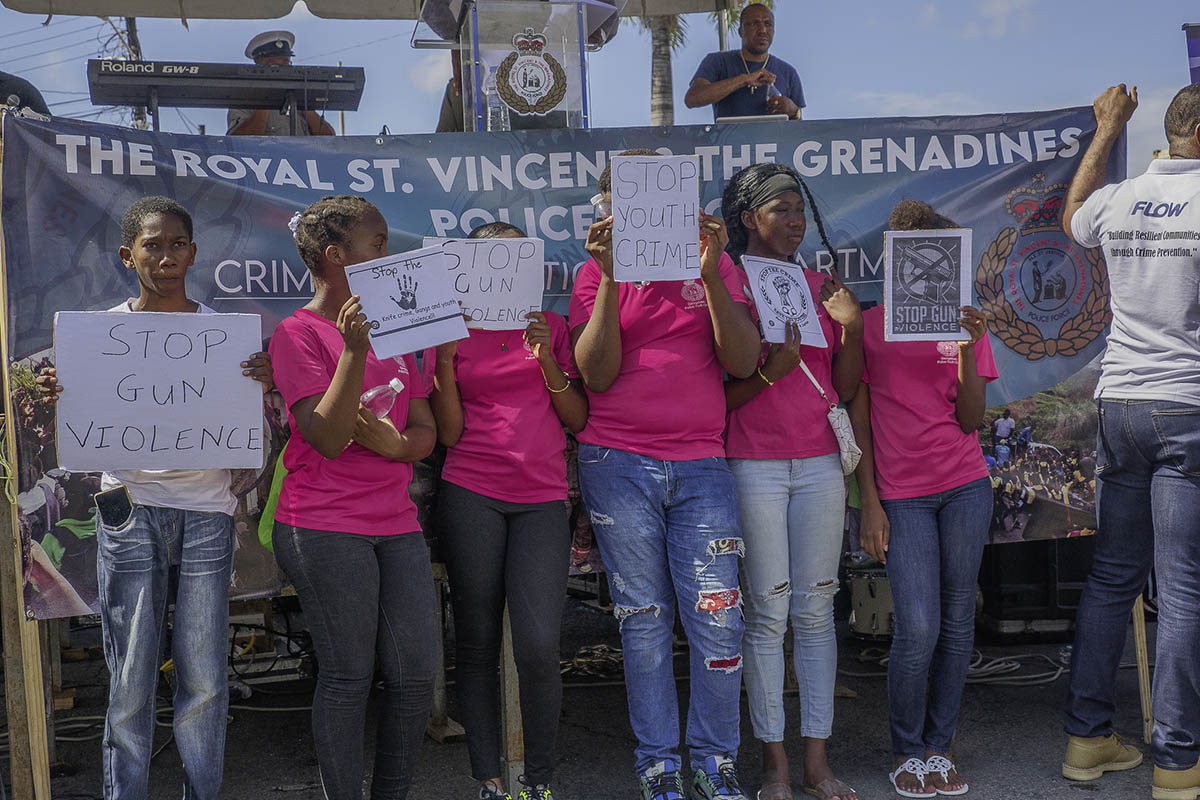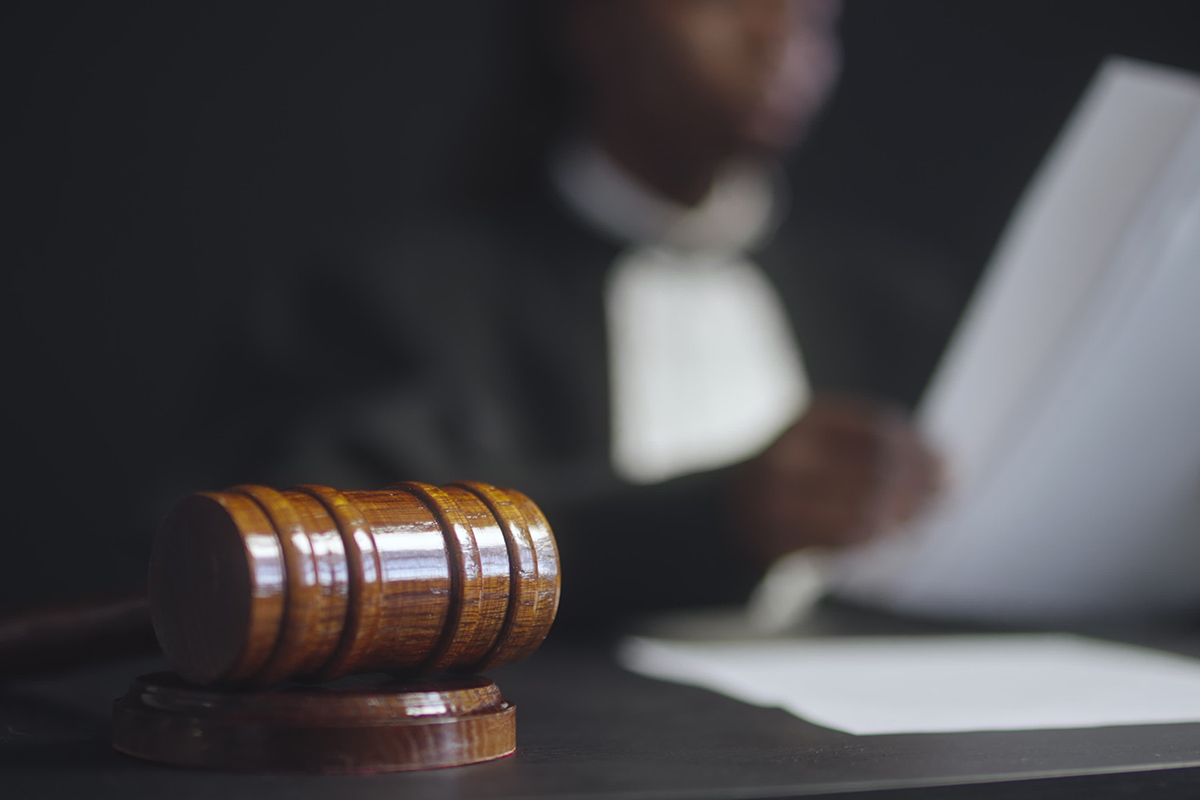Fighting Crime, One Conversation at a time
May 7by Jada Chambers
Any person who has ever used the phrase “Wrong place at the wrong time,” to try to cope with grief, must have endured so much torture in life, that even death has become trivial.
And yet, these words have become a new anthem in the small Caribbean nation of Saint Vincent and the Grenadines where it sometimes seems that when a homicide occurs, it is not because of a person’s involvement in criminal activity, but simply because they were at a place where a bullet just happened to be passing by.
“Wrong place at the wrong time” was what a woman said when her 14 year old nephew, Kashie Primus was gunned down in the country’s capital city Kingstown, while he was on his way to buy some bread.
Deejay Howard, who was in a stable condition while being warded at a hospital also said that he was at “The wrong place at the wrong time” on December 2, 2023 when he was shot by a masked gunman.

And “Wrong place at the wrong time” was the account given by some residents of a small village when they described seeing “two gun toting men…emerging from a white Susuki Swift, and opening fire” on a disabled man.
These three males are just an infinitesimal fraction of a disheartening statistic which includes over 100 people who have either been shot or murdered in St Vincent and the Grenadines during the record-breaking homicide count within the two-year period between 2022 and 2023.
This “National Emergency ” has caused the masses to point their fingers and question the Ministry of National Security as well as law enforcers on their approach to curtailing crime in the country, AND RIGHTFULLY SO.
But, whenever I see anomie worm its way into a society, I often think of French Sociologist Emile Durkheim who believed that social institutions within a society are synonymous with organs in the human body, where each organ must operate cohesively in order for the body to remain healthy and fully operative.
Therefore, when members of social institutions, such as the family, religious system, the government, and the education system execute their roles and responsibilities effectively, the society in which these institutions exist can easily counteract any normlessness that enters into that society.

As long as you belong to a society, you are not exempted from your responsibility to mitigate any lawlessness in your society, and that includes crime.
Social Interactionists believe that people shape society and that people who lack attachments or have weak social bonds with other people tend to become deviant (Hirschi 1969, 2004).
So, refusing to sit with a former convict in church may do more harm than one may think. In fact, this may cause that person to live up to his label, as committing crime is the only way he feels seen. A label is more than a name. It is created through a social process that creates deviance (Lemert 1951).
So, it begs the question, what do you do to alleviate crime in the world around you?
Do you look out for that troubled youth in your community? Or do you wait until you see their name plastered across the media for committing a crime to start caring about their well-being?
Do you as a teacher, as part of the education system, take note of that child who is underperforming in class? Or do you just focus on the top performers and watch him give up on his education, and in turn stifle his ability to earn money legally?
And do you as parents get involved in your children’s lives and the friends they associate themselves with? Or do you wait until they are being charged with a drug offence to find out that they are different people at home than they are in the streets?
Our right to live should not be at the mercy of chance when we have the power to create changes; so let us begin the conversations and work hand in hand to build a safer community, so that our lives will not be snatched from us, simply by being in the “Wrong place at the wrong time.”






